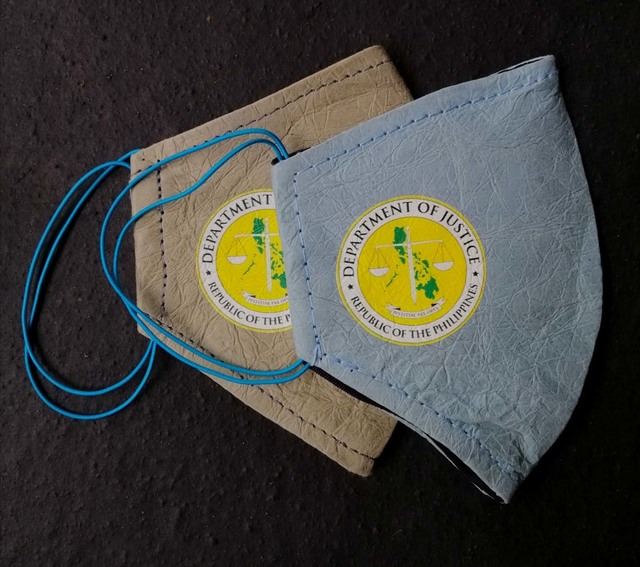Mindanao's trademark abaca paper is now a face mask
Tests by the Department of Science and Technology (DOST) Region 10 show that the abaca fiber mask has a filtration rate 7 times better than cloth masks and has lower water absorption than N95 masks
by Mavic Conde
ALBAY, Philippines – From global to local.
Salay Handmade Products Industries, Incorporated (SHPII), an artisanal company which exports handmade paper products has started producing face masks for the local market using abaca paper.
"Though we know that commercially made masks like N95 and surgical mask are made from abaca fibers, most likely from the Philippines, we [still] need proof so the only way we can do this is to have it tested in a laboratory and compare it with cloth masks and those giants, the N95 and surgical masks," Neil Francis Rafisura of SHPII said.
The Philippines supplies 87% of abaca fiber demand to the world market.
The test conducted by the Department of Science and Technology (DOST) Region 10 in terms of filtration and porosity showed that abaca paper’s filtration rate is 7 times better than cloth and it has lower water absorption than an N95 mask, Rafisura said. (READ: DOST’s rewashable face masks ready for commercialization)
SHPII’s abaca paper was actually developed a decade ago, through a partnership between the company’s product development team and the Department of Trade and Industry (DTI) Region-10 through the Design Center of the Philippines.
Rafisura described it "as a strong, water repellent fiber paper — superior in strength and durability that can be applied in many uses.”
The Misamis Oriental – based SHAPII has been a manufacturer and exporter of handmade paper for 32 years using strong fibers, bark, leaves and grasses such as abaca fiber, pineapples leaves, salago bark, banana fiber, and cogon grass.
It is a women-dominated social enterprise that ventured into exporting in 1990, abiding by fair trade principles. In 2003, SHAPII joined the World Fair Trade Organization, then known as the International Federation of Alternative Trade.
The company has around 120 to 350 artisans and producers manufacturing and converting handmade paper into a variety of stationery items – from greeting cards to journals; calendars to frames, lamps, and even boxes.
The coronavirus pandemic hit SHAPII hard: most of its artisans and workers were left without any livelihood and more so, its overseas customers have been closing their companies.
After determining that abaca paper can filter out particles, SHPII began to use it as a material for face masks.
"A handful of women workers from SHPII who have experience in sewing experimented using the strong fiber and filters for the mask," Rafisura said.
While this Philippine-made fiber mask costs more than regular cloth masks, it offers personal and better protection. It is also eco-friendly and can be customized.
More importantly, the production of the face masks will now provide a new livelihood to the community and would help drive the economy into motion as raw materials are locally sourced, and manufacturing, conversion and shipping are also done locally.
The challenge posed by the World Fair Trade Organization – Asia helped management stir its crisis response to this direction, especially after it urged Certified Fair Trade Companies like SHPII and groups in Asia to develop and supply personal protective equipment (PPE) sets for affected communities.
Rafisura said that the company is also grateful for the help extended by different government agencies for providing them market access.
He said that Salay Handmade workers have always wanted “sustainability through trade and not aid." – Rappler.com